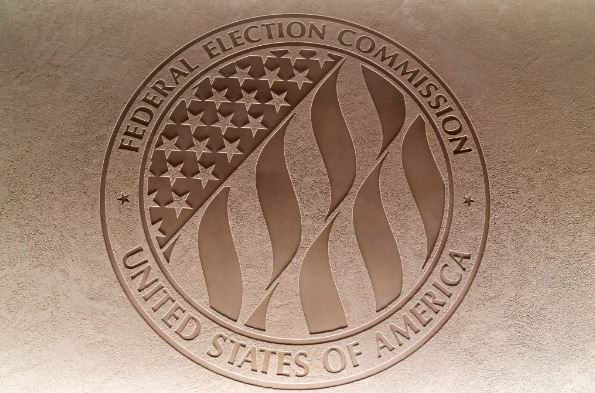In a move that could reshape the landscape of election fundraising, the Federal Election Commission (FEC) quietly issued an advisory opinion last week permitting candidates to raise unlimited funds for issue-advocacy groups involved in ballot measures where those candidates are on the ballot.
The opinion, issued in response to a request from a Nevada-based abortion rights group, has far-reaching implications for the upcoming elections, particularly in battleground states where narrow margins could sway the outcome. The decision could have significant ramifications for candidates aligned with such groups, potentially giving them a fundraising advantage.
The ruling applies to all federal candidates, but with the presidential election looming in six months, attention is largely focused on the race between President Biden and former President Donald J. Trump. The opinion allows both candidates to solicit funds for outside groups advocating for ballot measures, particularly those related to abortion rights following the recent repeal of Roe v. Wade.
Adav Noti, of the nonpartisan Campaign Legal Center, described the decision as a significant departure from the restrictions imposed by the McCain-Feingold campaign finance bill in 2002. He emphasized the potential impact of the ruling on the conduct of campaigns, particularly in terms of fundraising strategies.
The opinion, issued on May 1st, was prompted by a query from lawyers representing the group Nevadans for Reproductive Freedom, which seeks to place a referendum on the fall ballot. The FEC found that federal candidates and officeholders are not limited in their ability to raise funds for such groups, neither in terms of dollar amounts nor sources.
However, not all stakeholders welcomed the ruling. The National Republican Senatorial Committee (NRSC) expressed concerns about potential coordination between candidates and outside groups, warning that it could bolster Democratic voter turnout. Additionally, the committee raised apprehensions about the potential influx of foreign money into states where contributions for ballot measures are not restricted.
Despite objections from the NRSC, the FEC proceeded with the advisory opinion, with three Republicans and one Democrat on the commission in agreement. The decision marks another instance where the FEC has taken action with significant implications for campaign finance, following recent rulings that expanded the capabilities of super PACs.
In response to the ruling, Chris LaCivita, a top adviser to Mr. Trump now serving as the chief of staff for the RNC, expressed readiness to leverage the newfound opportunities to counter what he described as the “corruption and failure of the Democrat machine.”
Meanwhile, the departure of Charlie Spies, the RNC’s chief counsel, shortly after the FEC ruling, raises questions about potential connections between the advisory opinion and internal dynamics within the committee. However, a spokesperson for the Trump team did not provide immediate clarification on whether Spies’s exit was linked to the ruling.
The FEC’s decision to permit candidates to raise unlimited funds for issue-advocacy groups underscores the evolving landscape of campaign finance and the increasing influence of outside spending in elections. As candidates and political parties navigate the implications of the ruling, its broader impact on the electoral process remains to be seen.

